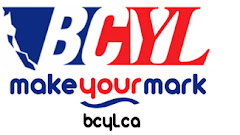February 19, 2008
VICTORIA — A wide range of new measures to address climate change, promote greener choices, and encourage economic investment will allow British Columbia to meet the challenges of the future, Finance Minister Carole Taylor announced with the release of Balanced Budget 2008.
“This budget marks a turning point,” said Taylor. “It overturns the notion that you have to choose either a healthy environment or a strong economy. It will help keep British Columbia vibrant and growing, it takes a big step toward meeting the challenge of climate change, and it strengthens key public services like health care and education.”
To help reduce B.C.’s greenhouse gas emissions by one-third by 2020, Balanced Budget 2008 includes a revenue-neutral carbon tax, provides $440 million for a one-time Climate Action Dividend, and over $1 billion for a broad range of climate action programs and tax incentives.
Effective July 1, 2008, subject to approval by the legislature, British Columbia will introduce a fully revenue-neutral carbon tax with built in protection for lower income British Columbians. The tax will begin at a low rate and increase gradually to give individuals and businesses time to adjust. It will apply to virtually all fossil fuels, including gasoline, diesel, natural gas, coal, propane, and home heating fuel — making it among the broadest and most comprehensive in the world.
Legislation will require a plan to be tabled in the legislature each year, showing how the revenue raised will be returned to businesses and individuals. None of the carbon tax revenue will be used for expenditure programs.
“The principle is simple,” said Taylor. “Tax carbon emitting fuels to discourage their use, and give the money back to people, back to businesses, so they have control. They can make their own choices about how the tax affects them. At the same time, by making greener choices more commercially viable, it will stimulate innovation and open up new economic opportunities across British Columbia.”
The carbon tax is forecast to generate approximately $1,849 million over three years. This revenue will be returned to businesses and individuals through a new Climate Action Credit for persons with lower incomes ($395 million) and reductions to personal income tax rates ($784 million), the small business income tax rate ($255 million), and the general corporate income tax rate ($415 million).
In addition to the revenue-neutral tax reductions, every British Columbia resident will receive a one-time, $100 Climate Action Dividend to help people adopt greener lifestyles. At a total cost of $440 million, the dividend payments will be issued in June, before the new carbon tax takes effect. It is the government’s hope that British Columbians will apply the funds toward purchases that can help reduce their greenhouse gas emissions and, by doing so, the amount of carbon tax they would otherwise pay.
The budget also provides, over four years, more than $1 billion to encourage energy efficiency, implement new regulatory requirements, undertake cutting-edge research and make low-carbon investments. These climate action initiatives include: new funding for home energy audits and retrofits; sales tax exemptions for ENERGY STAR appliances; up to $2,000 in reduced sales tax on the purchase of fuel efficient vehicles; a new biodiesel production incentive; an expanded venture capital program aimed at clean technology companies; and funding to reduce emissions at B.C.’s ports and commercial truck stops.
“While the economic forecast sees British Columbia continuing to outperform Canada and the U.S., weakening conditions south of the border and international uncertainty show how important it is to maintain a prudent approach,” said Taylor. "It’s also a reminder that we must always explore new ways to make B.C.’s economy more competitive, innovative, and diverse."
Balanced Budget 2008 delivers $407 million in targeted tax reductions and $428 million in new investments to improve British Columbia’s competitiveness and build on our strengths. Tax measures include: improvements to B.C.’s Film Tax Credits; lower provincial property tax rates on major industrial properties; replacing the financial institutions capital tax with a minimum tax; improvements stemming from the Provincial Sales Tax Review; and changes to the International Finance Act to expand the types of patents and activities eligible for tax refunds.
“This year, our province celebrates 150 years of growth and progress,” said Taylor. “As we look back on the legacies of the past, it reminds us that we all have a choice about how future generations will remember us. I hope we will be remembered as the generation that took action, that showed respect for the environment, who set the foundation for a strong economy, and built a legacy to be proud of.”
For the Finance Minister’s speech and more about details on Balanced Budget 2008, visit
www.gov.bc.ca/bcbudget online.








